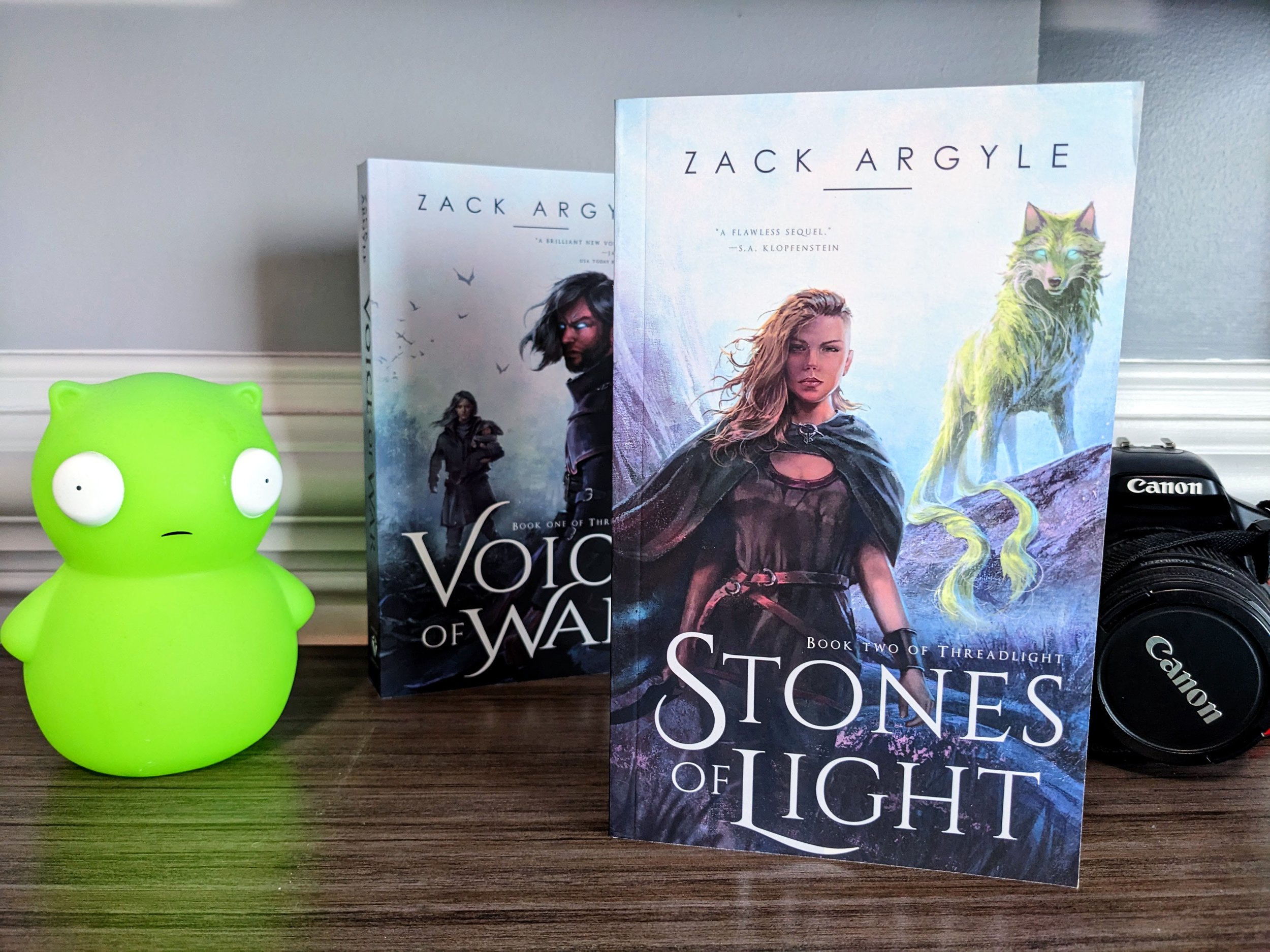A Review: Stones of Light by Zack Argyle
I did something a bit unconventional with Zack Argyle’s Threadlight series. Instead of waiting several months to return to the story, I jumped into Stones of Light rather quickly since the third and final installment was approaching. Voice of War was a satisfying experience, and I wanted to see how the author executed his second work. Would it all fall apart or would he pull together a story as compelling as the first?
What is Stones of Light About?
Stones of Light picks up after the fallout of Voice of War. Chrys, forced via possession to do the apogee’s bidding, travels far from home and learns the true extent of the dark spirit’s plans while Alverax travels with the Zeda people, hoping to redeem his family’s past by placing his new talents into service. Meanwhile, Laurel, stripped of the power she held dearest, struggles with her addiction as she finds herself in the middle of a moral gray zone.
Review
If, like me, you suspected that there was much more going on with the worldbuilding than first presented with the first installment of the book, you’ll be happy to learn that the lore of this world runs much deeper. And the mysteries uncovered reveal something much darker than any of the characters could have imagined. Argyle’s careful worldbuilding gave hard magic system fans everything they needed to fill us with wonder.
Alverax’s story in the novel was especially compelling for me. In the first novel, I knew he’d come to the fore as an interesting player in the story’s plot, but in this story, he became the character I was most interested in following. It’s a story of redemption, sacrifice, and loss that gripped my heart and wouldn’t let go.
On the other hand, Laurel’s story didn’t ring as strong for me. While the premise of her story is great in concept, in execution, I found myself wishing to get back to either of the other primary characters for a long while until her story finally blossomed. Argyle left off with some fascinating implications about who she is and what she will become in the finale, however—a saving stroke of the pen that I applaud the author for employing.
Is Stones of Light worth reading?
Like the previous installment, I found this novel incredibly difficult to put down. The story’s pacing is a masterwork, and I loved how the characters were continuously placed in impossible situations that required sacrifice and inner turmoil to overcome.
I should withhold my judgment of the entire trilogy until I read its dramatic conclusion, but I wholeheartedly recommend that you jump into the series. It’s possibly one of fantasy’s most underappreciated stories of the decade.

